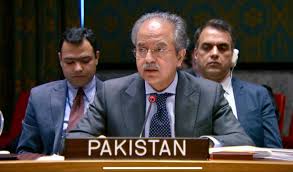Greece carving out its own role, independent of others

Athens: The deepening cooperation between Greece and the United States has grown exponentially over the past decade. The bilateral relationship has acquired its own momentum and should not necessarily be viewed through the prism of the triangular relationship that includes Turkey.
Obviously, our neighbor is part of a difficult regional puzzle and, for obvious reasons, cannot be ignored in many decisions and plans by either Athens or Washington. But it is also clear that for some time now Greece has been carving out its own independent role.
In private conversations, but also in public statements, relevant US officials have made it clear that Greece, with its added value in fulfilling its NATO obligations and its credibility in dealing with a range of issues, is increasingly becoming part of US strategic planning, be it in the military or in the energy field.
The US has repeatedly emphasized the strategic value of Crete and Alexandroupoli in the Eastern Mediterranean and the Balkans. The contribution of Crete’s Souda base to the projection of American power in the region was recently confirmed by the war in Gaza. Something similar is happening with the key role of the port of Alexandroupoli, both for the transportation of military equipment and for strengthening energy independence, giving Greece increased strategic characteristics.
At the same time, an interesting finding of the Pulse survey for Kathimerini, which was presented at the conference organized a few days ago in Washington DC by Kathimerini English Edition together with Delphi Economic Forum and the Hellenic American Leadership Council (HALC), is the noticeably more positive image of the US in the eyes of Greeks compared to the past. This is in contrast with the case for some other countries in the region.
The relationship between Greece and America is maturing and is characterized by a sense of continuity, which is confirmed by the fact that the changes of government in both countries (Obama, Trump and Biden in the US – Samaras, Tsipras and Mitsotakis in Greece) have not affected this deepening process.
The behavior of our Aegean neighbor is a real issue and a concern not only for Greece, but also for the US. However, the at times “obsessive” approach to all issues within the framework of the triangular relationship, which focuses on comparisons and correlations with Turkey, is not necessarily the most effective.
Having recovered from the economic crisis, Greece has every reason to behave and interact in a manner that projects its own influence on regional diplomacy and security, as well as in energy, at this stage as a key energy gateway to the Balkans and the rest of Europe, and possibly in the future as an energy producer itself.





